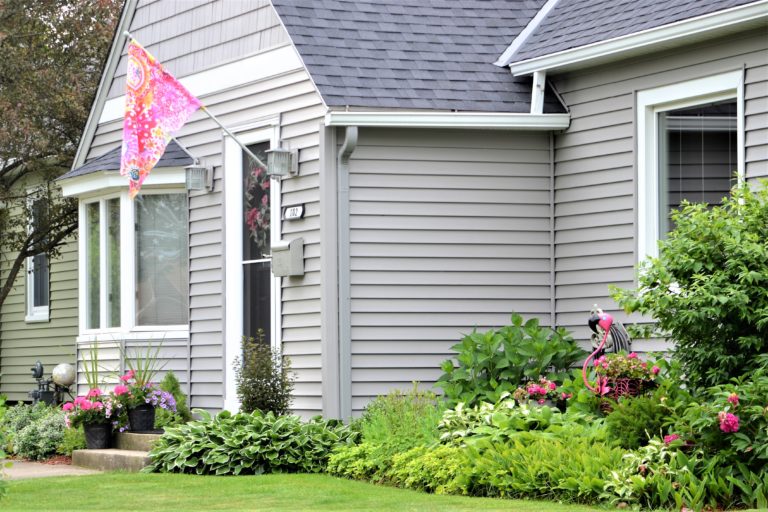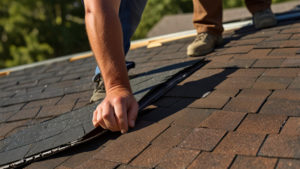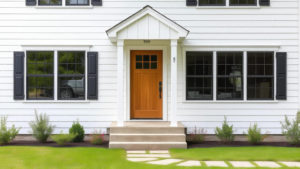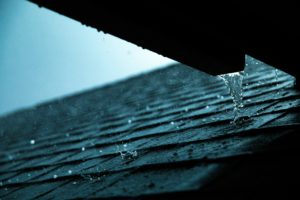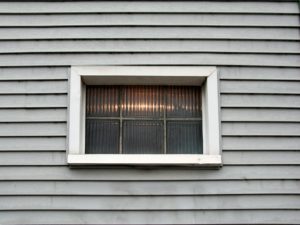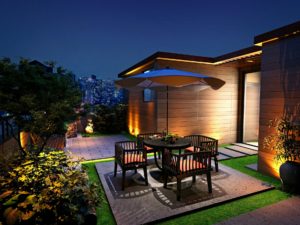As an essential part of any home, siding plays a crucial role in protecting your property from the elements while enhancing its appearance. With numerous siding options available, it’s important to select the ideal material that best fits your needs, preferences, and budget. One popular siding choice among Michigan homeowners is vinyl siding, known for its durability, low maintenance, and affordability. But did you know that modern vinyl siding can also provide impressive energy efficiency?
In this article, we’ll explore the benefits of installing energy-efficient vinyl siding and how it can contribute to long-term savings and improved home aesthetics.
Understanding Insulated Vinyl Siding
As we’ve briefly touched upon above, insulated vinyl siding consists of standard vinyl siding panels with an added layer of foam insulation material installed behind them. This additional layer significantly enhances your Michigan home’s energy efficiency, translating to a more comfortable living environment and potential savings on utility bills. Before we dive into the myriad advantages of this superior siding option, it’s essential to understand the variations in insulated vinyl siding.
There are two primary types of insulated vinyl siding: traditional insulated vinyl siding and insulated composite siding. Traditional insulated vinyl siding features a layer of rigid foam insulation that is either factory-applied or installed on-site behind the siding panels. Insulated composite siding, on the other hand, merges the foam insulation and the vinyl siding panel into a single product. While both options offer energy efficiency, they differ in terms of cost, ease of installation, and customization.
Enhanced Energy Efficiency and Comfort
One of the most significant benefits of choosing insulated vinyl siding is its ability to reduce your home’s heat transfer. This energy-saving feature keeps the interiors warmer during the cold Michigan winters and cooler during hotter months. By minimizing temperature fluctuations, insulated vinyl siding can help reduce your reliance on heating and cooling systems, possibly leading to considerable savings in energy consumption and costs.
In addition to energy savings, insulated vinyl siding contributes to a more comfortable living space by reducing noise transmission and drafts. The added insulation dampens outdoor noise, creating a quieter indoor environment, while also minimizing drafts and cold spots within your home. This enhanced level of comfort is a notable advantage for many homeowners deciding on their siding options.
Improved Durability and Weather Resistance
As mentioned earlier, vinyl siding is known for its durability and ability to withstand various weather conditions. However, insulated vinyl siding takes this a step further by augmenting the rigidity of the siding panels. The added foam insulation provides increased resistance to impact and damage, extending the lifespan and performance of your siding.
This improved durability means that insulated vinyl siding can better protect your property against harsh weather events, including wind, rain, hail, and snow. With less risk of damage, homeowners can rest assured that their investment in siding maintenance and repairs will diminish over time.
Aesthetic Appeal and Customization Options
Choosing insulated vinyl siding for your home doesn’t mean sacrificing its visual appeal. These siding options come in a vast array of colors and styles, including traditional clapboard, shingle, and board-and-batten designs. The multitude of options allows you to find a siding solution that complements the architectural style of your property and enhances its overall curb appeal.
In addition to colors and styles, insulated vinyl siding offers several accessories and trim options for further customization. These details can help you create a cohesive and polished exterior that meets your unique preferences and aesthetic vision.
Environmentally Friendly Choice
Investing in energy-efficient home improvements, such as insulated vinyl siding, is not only beneficial for your wallet but also for the environment. By reducing your home’s energy consumption, you are simultaneously cutting down on greenhouse gas emissions.
Moreover, vinyl siding is a sustainable option as it requires less energy to manufacture than other siding materials like brick or wood. It is also a low-maintenance option, meaning there is no need for painting or staining, which can contribute to harmful VOC emissions. With an insulated vinyl siding solution, you’re making a responsible and eco-friendly choice for your home’s exterior.
Conclusion
Choosing energy-efficient vinyl siding for your home provides an array of benefits that go beyond improved aesthetics. From enhanced energy efficiency and comfort to increased durability and weather resistance, insulated vinyl siding proves to be a valuable investment for homeowners seeking a long-lasting, eco-friendly, and visually appealing exterior solution.
As we continue to illuminate the path to superior home exterior solutions, we encourage you to reach out to our experienced team at Lighthouse Exteriors. Together, we can help you explore the range of available insulated vinyl siding options in Michigan and find the perfect solution to transform your home.

